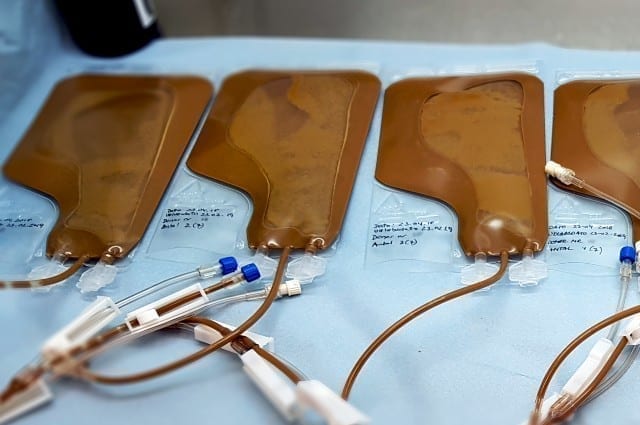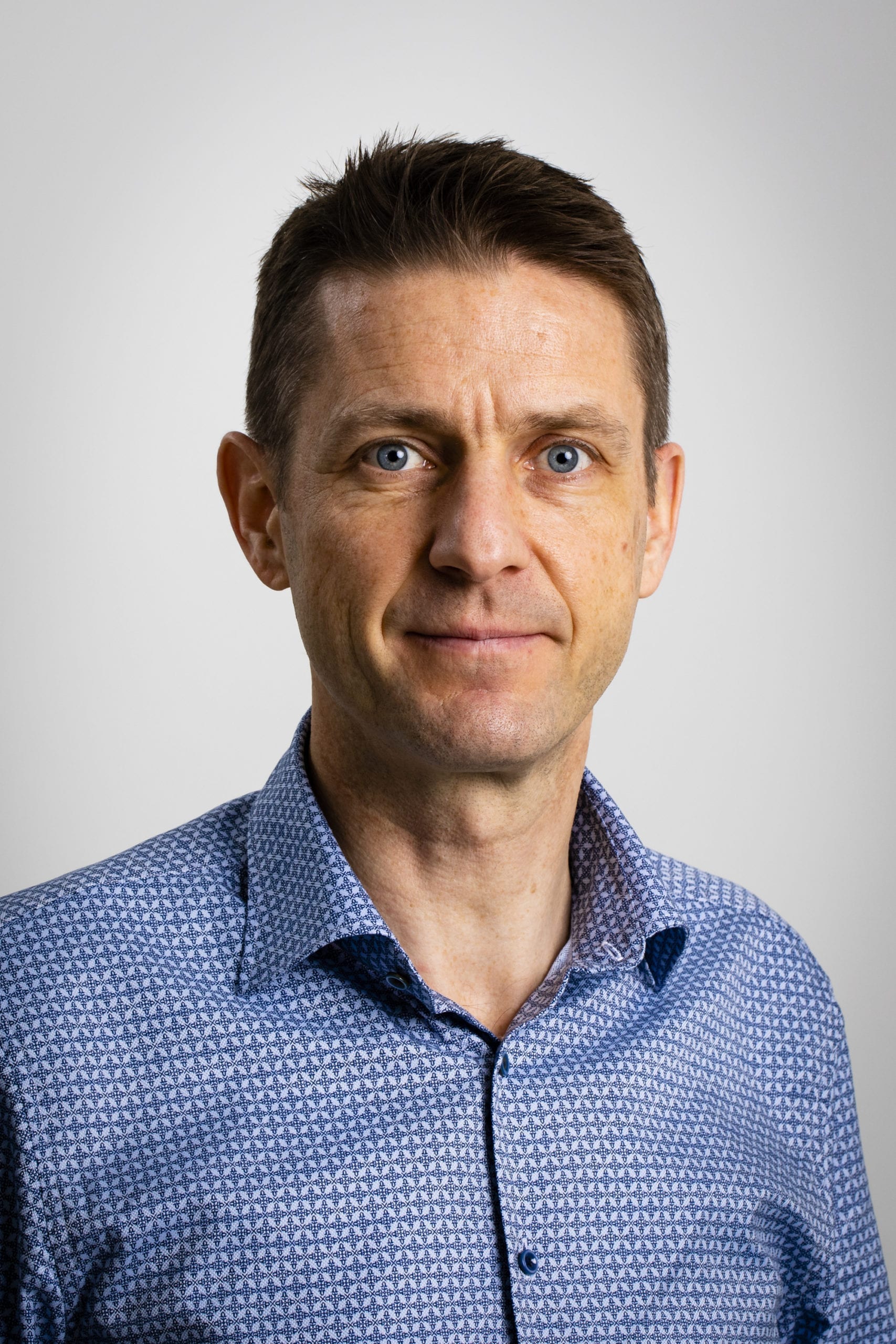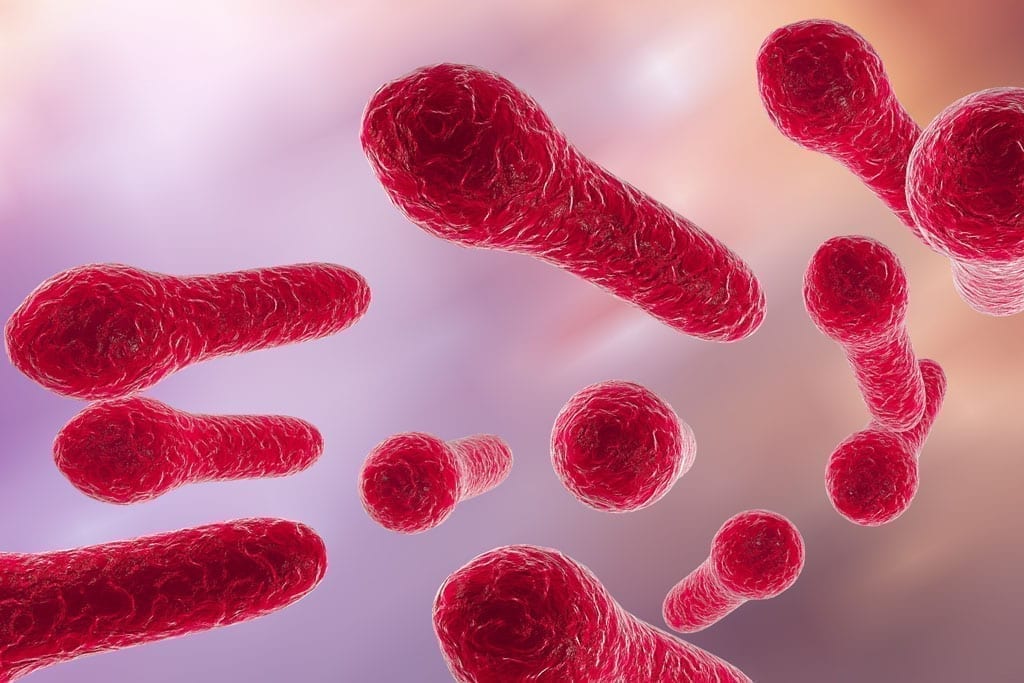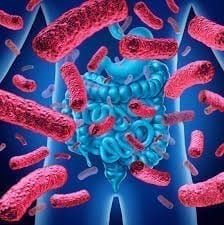Other people’s fecal matter may save lives
Donor stool may cure seriously ill patients. Nine out of ten patients with the bowel disease Clostridium difficile may receive a cured after one or more fecal transplants. This treatment with other people’s fecal matter is as of now in systemization.
Every year, more than 3,500 Danish patients is contaminated by the dangerous intestinal bacterium Clostridioides difficile. These are stubborn bacteria, which may cause diarrhea and severe intestinal inflammation. These bacteria are especially dangerous to the weak, the elderly and chronically ill patients undergoing treatment by antibiotics.
Frequent courses of antibiotics may interfere with the intestinal balance causing the good intestinal bacteria to become outnumbered or altogether disappear, letting Clostridioides difficile get the upper hand. This may become dangerous to the patient and the diarrhea may develop into a life-threatening infection that could cause the patient to lose his or her life.

Fecal transplant therapy
After several studies and several attempts at curing patients with Clostridioides difficile using a variety of bacterial cultures, the breakthrough happened in Europe, in 2013.
A Dutch endocrinologist documented that fecal transplant therapy – also known as fecal microbiota transplant (FMT) – might cure nine out of ten patients of Clostridioides difficile. The method involves transferring good intestinal bacteria from a donor to a patient.

– The influence of fecal transplant therapy is significantly better than that of the best antibiotics available which may cure only two out of ten, says Christian Lodberg Hvas.
He is a Chief Consultant at the Department of Hepatology and Gastroenterology, at Aarhus University Hospital, and a Clinical Lecturer at the Department of Clinical Medicine, Aarhus University, and recommends that fecal transplant therapy should be the first choice for patients experiencing a recurrence of these stubborn bacteria after a course of antibiotics.
17 million for the development of a Danish standard treatment
Today, fecal transplant therapy is performed at several Danish hospitals as part of research projects and, in 2018, Christian Lodberg Hvas and his research team received a grant of DKK 17 million (approx. 250 000 USD) from Innovation Fund Denmark.
The money were earmarked for the work of turning stool from healthy, registered and tested donors into a Danish standard treatment. The research team is also in the process of identifying suitable stool donors and building up a stool bank.
– Fecal transplant therapy not only saves the life of the individual patient – it is also a good investment for the hospital system and, thus, for society, Christian Lodberg Hvas says.
After reviewing the initial treatments, he found significant savings over previous treatments, which typically caused the patients to be hospitalized multiple times, and for extended periods of time.
A diverse bacterial composition is the key to good health
Experts believe that the key to good health is having several different intestinal bacteria – in other words, diversity is important.
A number of studies also confirm that there is a link between a poor microbiota (intestinal flora) – a microbiota with only a few types of bacteria – and serious diseases such as chronic bowel inflammation (Colitis Ulcerosa), disseminated sclerosis, Parkinson’s, Alzheimer’s and colon cancer.
This even applies to diseases such as autism, allergies and type 2 diabetes.

Some researchers believe that many of these serious diseases may be cured using fecal transplant therapy and, at the time of writing, there are approximately 200 studies into whether this is the case.

This is how fecal transplant therapy is performed
Fecal transplant therapy (FMT) may be performed in three ways, each of them about just as effective:
- Through colonic endoscopy where the endoscope is inserted into the colon
- Through a stomach tube to the small intestine where the probe is passed through one nostril
- By way of capsules (a total of about 30) which are to be swallowed
Contested classification: Medicine or tissue?
The possibility of, in the long term, being able to cure other serious diseases using intestinal bacteria has also received the attention of the pharmaceutical industry. They see a business idea in donor fecal transplant therapy. For this reason, they are interested in having feces classified as a medicine – and hospitals are not permitted to manufacture medicine. Medical practitioners, on the other hand, believe that this is a matter of using tissue along the same lines as blood or bone marrow. They would prefer to have feces classified as tissue.
At the Aarhus University Hospital, there is no need to wait for a decision. The Danish Patient Safety Authority has given the green light to continuing the work of building a feces bank and treating seriously ill patients using fecal transplant therapy.
By Christa Zenobie Dahl
Sources:
Aarhus University Hospital, Department of Hepatology and Gastroenterology, Patient guidelines: General guidelines on fecal transplant therapy (“Generel vejledning om fæcestransplantation”).
Article in ING.dk/Ingeniøren – ing.dk, 14 Maj 2016: “Vital aides – and new way to treatment and prevention: Bacteria control your life” (“Livsvigtige hjælpere – og ny vej til behandling og forebyggelse: Bakterierne styrer dit liv”) by Mie Stage.
Article in the newspaper Weekendavisen, 1 November 2019: “The brown gold” (“Det brune guld”) by Gunver Lystbæk
Article on the scientific forum Forskerzonen, 3 September 2019 at Videnskab.dk: “Can miracle poop cure more than one life-threatening disease?” (”Kan mirakellort helbrede mere end én livstruende sygdom?”) by Christian Lodberg Hvas – Chief Consultant at the Department of Hepatology and Gastroenterology, Aarhus University Hospital and Clinical Lecturer at Department of Clinical Medicine, Aarhus University, and Lars Holger Ehlers – Professor of Health Economics at the Department of Clinical Medicine, Aalborg University.

 Made in Scandinavia
Made in Scandinavia